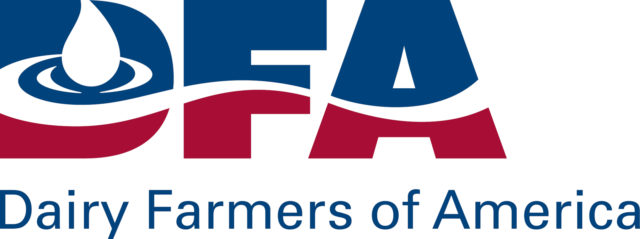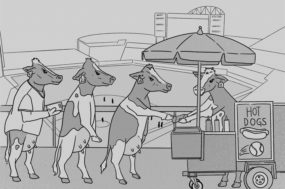For the last year and a half, I have researched, written and shared about female entrepreneurs I admire and the lessons the dairy industry can learn from them. Before I reflect on the series ending, I want to share how it started.
This idea blossomed when I helped co-found the Dairy Girl Network Forward TogetHER Showcase – a new take on your typical trade show. This is a part of the Dairy Girl Network biannual national conference. The showcase is a shopping and networking experience that celebrates female entrepreneurs, industry businesswomen and the empires they’re building.
I knew I could elevate this idea of empowering women by taking business lessons I’ve learned from established female entrepreneurs I look up to and sharing them with the dairy industry through real-life farmer examples. Here are the top five insights I’ve gained and the women behind them.
1. Resiliency
Barbara Corcoran, shark on Shark Tank and savvy New York realtor, showed us that often our best success happens on the heels of our failures. Mikayla Fulper of Fulper Farms in New Jersey (and avid Shark Tank fan) offered the advice that dairy farmers can be resilient by diversifying their portfolio, looking for ways to be a more sustainable operation and taking care of their health and mental resiliency.
“During this dairy economy, we’ve had to find ways to be resilient,” Fulper said. “We diversified. We went further into crops [hay, rye straw, corn, grain, soybeans], and then we took another sideways step into agritourism and producing value-added dairy products. We also focus on being more sustainable to improve profitability with practices such as no-till, precision planting and putting in solar panels.”
2. Don’t over-apologize
Rachel Hollis, best-selling author and motivational speaker, gave us tips to build “a shame-free plan for embracing and achieving your goals.” Kris and Lindsey Rucks, mom-and-daughter farming duo of Milking R Dairy in Okeechobee, Florida, live this through their actions; they hold their employees accountable, and Lindsey made the decision to leave a corporate job to come back to the family business.
“Not saying sorry is something that I am working on,” Lindsey Rucks said. “I know I have ‘fake’ apologized to friends when breaking plans because of duties at the farm or after a long day that I just want to go home, kick off my rubber boots and decompress.”
3. Build your red team
Carey “The Vixen” Lohrenz, the first female F-14 Tomcat fighter pilot in the U.S. Navy, explained the concept of a red team, why you need one and when they’re applicable. Emily Yeiser-Stepp, senior director of the FARM Program, explained the importance of having people you trust to give you open, honest and occasionally unwanted feedback that could make or break the success of your decisions; think high-cost decisions like expansion, building a website or seeking new business partnerships as examples. It’s also important that you learn how to be a good red team member for others.
“In my role with FARM, we’re always trying to anticipate where the pressure points for the dairy industry will be next from a customer and consumer perspective,” Yeiser-Stepp said. “My dad and husband didn’t grow up in agriculture, but because of me, my family and our friends, they have become dairy industry supporters. But in the same vein, they are always asking ‘Why?’ to what we [dairy industry] do. If I can’t justify the ‘why’ to those two, I know we’re going to have issues getting those not as well informed (or well married) to buy in.”
4. Find a profitable solution to your problems
Sara Blakely, founder of Spanx and the youngest self-made billionaire, is proof that a problem can also have a solution that provides an income. Amanda Freund, third-generation dairy farmer and manager of CowPots, works with her family to turn their cattle manure into bio-degradable, plastic-free seed starting (planting) pots. Bonus – they’re odor-free.
“Talking about women’s undergarments as a serious business enterprise was probably met with a lot of skepticism and laughs. Trying to be taken seriously when we introduced a pot made from poop confronted a lot of critics as well,” Freund said. “It’s about persistence, surrounding yourself with people [who] believe in you, building a network and taking every opportunity to share your story. Not every person needs or wants Spanx, just like not every person has any interest in growing [plants], but every single person that hears our story about why we make CowPots on our farm [is] always impressed with the ingenuity and innovation.”
5. Tell your story
Carly Zakin and Danielle Weisberg, female entrepreneurs and founders of The Skimm, demonstrated that knowing your audience and telling an authentic story will leave a lasting impression. Amanda Radke, a well-known rancher, beef blogger and speaker, has taken 2020 as an opportunity to listen and relate with her audience more.
“As 2020 continues to unfold, it seems like there has been immense pressure to become an ‘expert’ on all topics and a push to use your platform to voice your opinion on every hot topic of the moment,” Radke said. “What I’ve realized is that it’s OK to take a step back, to really listen, to hear all sides, to evaluate information and to seek voices outside of your own vacuum. And then when we do decide to speak, it carries weight because it’s thoughtful, researched, rational and unifying.”
Advice from these women will add a lot of value to your business, communications and how you choose to live your life. I’d like to leave you with the same homework I’ve offered before: Reflect, listen, learn and apply. Or, as the influential Ruth Bader Ginsburg simply stated, “I’m a very strong believer in listening and learning from others.”






